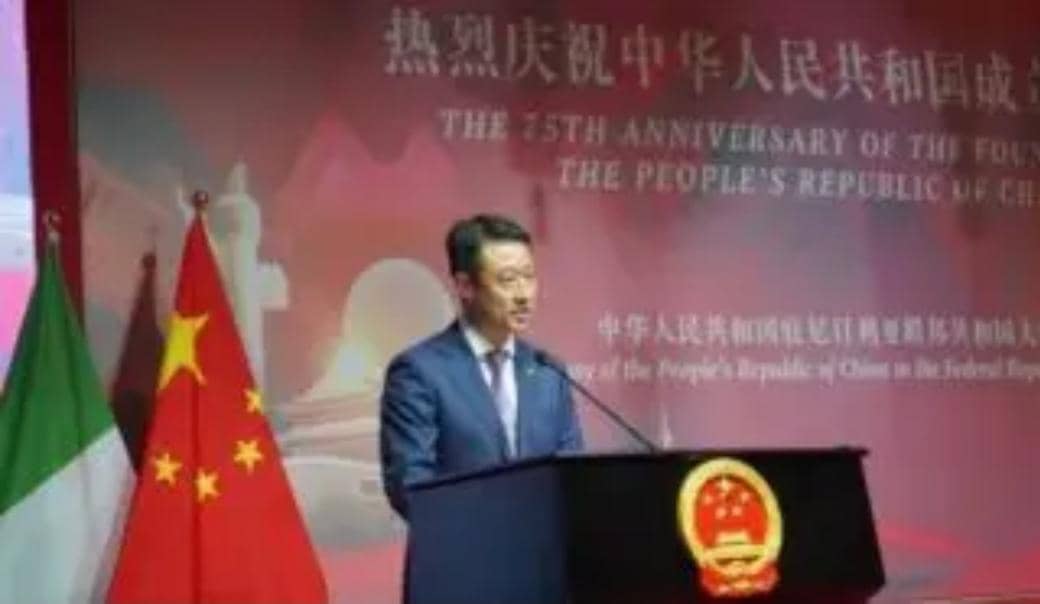China has announced plans to build Africa’s first-ever local insulin production facility in Nigeria, a move that could transform healthcare on the continent and improve access to life-saving diabetes medication.
The groundbreaking initiative is expected to not only make insulin more affordable and widely available but also position Nigeria as a pharmaceutical hub for West Africa.
The project comes at a time when diabetes cases are rising sharply across Africa. According to the International Diabetes Federation (IDF), over 24 million adults in Africa currently live with diabetes, and the number is projected to reach 55 million by 2045 if preventive measures are not taken. Yet, despite the growing demand, insulin remains scarce and prohibitively expensive in many parts of the continent.
With this development, Nigeria is set to take a leading role in addressing one of Africa’s most urgent public health challenges.
Why the Facility Matters for Africa
For decades, Africa has struggled with insulin accessibility. Many countries import insulin from Europe, North America, or Asia, which makes the medicine costly due to shipping fees, currency exchange fluctuations, and supply chain disruptions. In some African nations, a single vial of insulin can cost as much as a week’s wages, putting it out of reach for many diabetic patients.
By producing insulin locally, Nigeria will be able to drastically cut costs, improve supply reliability, and ensure that patients no longer have to depend solely on imports. Experts believe that this facility will also create a ripple effect across the healthcare system, from strengthening pharmaceutical research and development to reducing the burden on hospitals caused by poorly managed diabetes cases.
Dr. Amina Yusuf, a Lagos-based endocrinologist, described the project as “a turning point in Africa’s fight against diabetes.” According to her, the facility “will not only improve access but also save millions of lives that could otherwise be lost to preventable complications.”
Nigeria as a Strategic Choice
Nigeria, Africa’s most populous country with over 220 million people, is a logical choice for the facility’s location. The nation has one of the fastest-growing diabetes populations in Africa, with the IDF estimating that over 5 million Nigerians currently live with the condition, many of whom are undiagnosed.
The Nigerian government has welcomed the project as a major step forward in its commitment to improving healthcare infrastructure. Officials note that the insulin plant will align with broader goals to strengthen local pharmaceutical manufacturing, reduce medical imports, and build resilience against global supply chain shocks.
Beyond healthcare, the facility will also have significant economic benefits. It is expected to create thousands of direct and indirect jobs, ranging from pharmaceutical engineers and factory workers to supply chain managers and logistics operators. This fits neatly into Nigeria’s industrialization agenda, which emphasizes local production and reduced dependency on foreign imports.
China’s Role in Africa’s Healthcare Sector
China has increasingly deepened its footprint in Africa through trade, infrastructure, and technology investments. In recent years, healthcare has emerged as a new frontier of cooperation. Chinese firms have been instrumental in supplying medical equipment, building hospitals, and training African healthcare workers.
The insulin facility further cements this partnership. While details of the agreement have not been fully disclosed, industry analysts suggest that Chinese pharmaceutical companies will provide the technical expertise, state-of-the-art equipment, and training required to run the facility efficiently. Nigeria, in turn, will provide land, regulatory approvals, and local workforce integration.
This initiative also underscores China’s strategy to position itself as a leader in global healthcare manufacturing. By supporting local production in Africa, China is not only strengthening bilateral ties but also boosting its image as a partner in solving global health inequities.
Tackling the Diabetes Burden in Africa
Diabetes has long been considered a “silent epidemic” in Africa. Many patients are diagnosed late, often after complications such as kidney failure, blindness, or amputations have already set in. The high cost of insulin and limited healthcare infrastructure make management extremely difficult.
The World Health Organization (WHO) has repeatedly emphasized the urgent need for Africa to expand access to essential medicines like insulin. WHO officials have called for local manufacturing as a long-term solution, noting that dependence on imports makes Africa highly vulnerable to price shocks and global shortages.
Nigeria’s facility, therefore, could serve as a model for other African countries. If successful, similar plants may be replicated in East Africa and Southern Africa, creating a continental network of local insulin production.
Economic and Social Impact
The insulin plant is expected to do more than improve health outcomes. It will also stimulate Nigeria’s economy through job creation, skills development, and industrial growth. The pharmaceutical industry in Nigeria has long faced challenges ranging from underfunding to counterfeit medicines. A world-class insulin plant could help change this narrative by introducing new standards of production, quality control, and regulatory compliance.
In addition, the project could lead to partnerships with Nigerian universities and research institutes. This will boost local scientific capacity and encourage innovation in biotechnology, pharmaceutical sciences, and medical engineering.
On a social level, the facility will give hope to millions of families struggling with diabetes. For parents of diabetic children, access to affordable insulin could mean the difference between life and death. For working adults, it could mean better health and productivity, leading to improved economic outcomes at both household and national levels.
Challenges Ahead
While the project has been widely welcomed, experts caution that certain challenges must be addressed to ensure success. Regulatory bottlenecks, inconsistent power supply, and infrastructural deficits have historically hampered manufacturing projects in Nigeria. Ensuring that the insulin plant operates smoothly will require a strong commitment from both the Nigerian government and its Chinese partners.
Additionally, affordability remains a key concern. Even with local production, pricing policies must be carefully managed to ensure that insulin is truly accessible to low-income patients. Civil society organizations and patient advocacy groups are already calling for transparent pricing mechanisms and government subsidies where necessary.
Security and stability are also critical. Foreign investors often raise concerns about Nigeria’s security challenges, particularly in certain regions. To attract long-term investment, the government will need to provide assurances of a safe and conducive environment for operations.
Global Significance
The establishment of Africa’s first local insulin facility in Nigeria has implications that go beyond the continent. It sends a strong signal that global health equity can only be achieved when regions most affected by health challenges have the means to produce essential medicines themselves.
It also reinforces the growing importance of South-South cooperation, where developing nations collaborate directly to solve shared challenges without relying solely on Western countries.
As the world continues to grapple with rising healthcare costs, supply chain disruptions, and widening inequalities, Nigeria’s insulin facility represents a hopeful example of what international cooperation can achieve.
Conclusion
China’s decision to build Africa’s first local insulin facility in Nigeria marks a historic milestone for healthcare on the continent. By making insulin more affordable and accessible, the project has the potential to save millions of lives, strengthen Nigeria’s pharmaceutical industry, and position the country as a leader in healthcare innovation.
While challenges remain, the promise of improved health outcomes and economic growth makes this initiative one of the most significant healthcare investments in Africa’s recent history. If successful, it will not only transform diabetes care in Nigeria but also set a precedent for local pharmaceutical production across the continent.
WARNING: If You Are Not 18+, Don’t Click The Link Below 👇🫣
https://facultativethus.com/kx6iepv2qm?key=6c14bd1d68e1eba721851f19778f5efe
Please don’t forget to “Allow the notification” so you will be the first to get our gist when we publish it.
Drop your comment in the section below, and don’t forget to share the post.
Never Miss A Single News Or Gist, Kindly Join Us On WhatsApp Channel:
https://whatsapp.com/channel/0029Vad8g81Eawdsio6INn3B
Telegram Channel:
https://t.me/gistsmateNG




